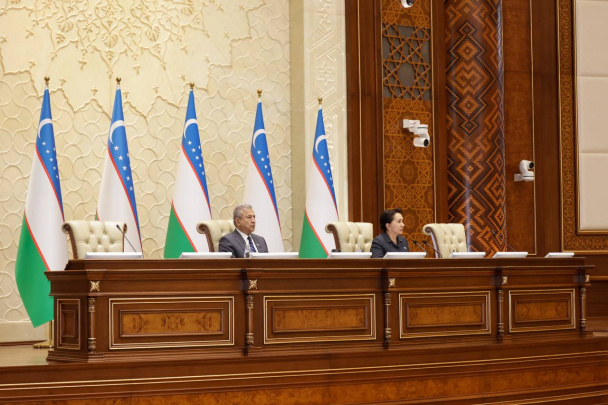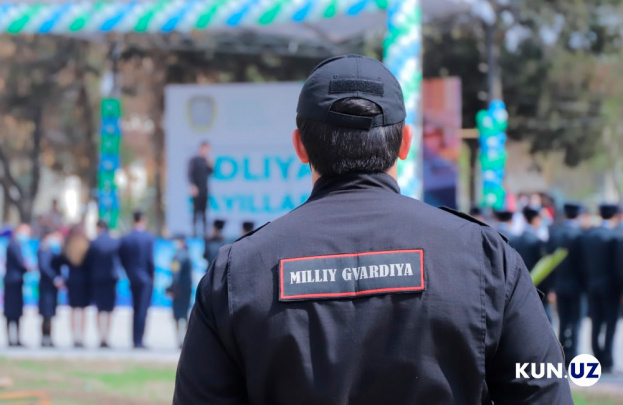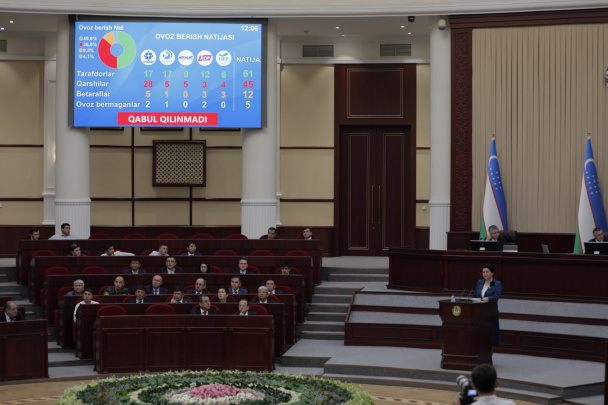MPs defend AI regulation bill, stress soft approach over harsh punishments
Legal frameworks regarding artificial intelligence (AI) are being introduced in Uzbekistan’s legislation. During a roundtable discussion involving media representatives, the drafters of the new legislation explained specific provisions of the bill – particularly those concerning liability for unlawfully manipulated photos and videos distributed using AI tools. Lawmakers emphasized that their goal is simply to prevent the misuse of rapidly evolving technologies.
On April 15, the Legislative Chamber of the Oliy Majlis passed the AI-related draft law in its first reading. The bill outlines the legal definition of artificial intelligence, the core directions of state policy in the field, and general rules for the use of AI.
According to the draft, products generated with AI that are shared online or through the media must be labeled. The bill also includes provisions for confiscating the tools used to unlawfully process and distribute personal data with AI. Offenders may face fines or up to 15 days of administrative detention.
On April 18, the Ministry of Digital Technologies hosted a roundtable discussion on the bill. A Kun.uz journalist raised several important questions:
- Why wasn't the bill published for public consultation?
- Is the proposed administrative detention of up to 15 days for misusing AI to process and distribute personal data justified?
- How will the labeling process for AI-generated content work? Will there be accountability for violations?
Several members of parliament responded to these questions.
Javlon Abdullayev, Deputy Chair of the Parliamentary Committee on Innovative Development and IT: "The bill was initiated by MPs as part of their legislative rights. This is just the first step. Public consultations are not mandatory, but during the intervals between readings, the draft can be discussed with the public, and feedback can be collected.
On the issue of liability: we are not calling for harsh punishments. For example, if someone uses AI to unlawfully process a person's data – such as adding pornographic elements to their photo or video and posting it online – by the time the perpetrator is found and punished, the content has already spread and damaged the victim's reputation. From this perspective, a 15-day detention is a proportional and reasonable measure.
As for labeling, there’s no universal requirement globally, but efforts are underway. After the law is passed, the Cabinet of Ministers will study the issue further. Either a textual note or a visual marker indicating AI use will likely be required. This will be developed in consultation with experts."
Behzod Toxtamurodov, Member of the same parliamentary committee: "We are taking a soft approach – we’re not setting strict limits. Uzbekistan aims to become an IT hub by 2030, so we are trying to avoid unnecessary restrictions.
AI-generated content looks increasingly realistic, and many people are easily deceived by it. While such content would require expert skills using conventional editing tools, with AI, even a school student can produce it. We are not trying to scare anyone – we simply want to prevent the misuse of this emerging technology. How this message is communicated depends on the media.
We will also consider your suggestions regarding the severity of the penalties. Before the second reading, we will hold more meetings and gather additional proposals and feedback."
Shakhnaza Kholmakhmatova, Member of the same committee: "It’s reasonable to demand that draft laws be opened to public discussion. This can be done between the first and second readings, and there is precedent for such practice. We will certainly discuss it with fellow MPs.
Regarding the penalties: we are not proposing excessively harsh measures. The tools used to commit the offense will be confiscated, and offenders may face administrative detention or a fine. Importantly, Clause 2 of the article clarifies that administrative detention cannot be applied to certain groups, such as pregnant women, people with disabilities, and those with children under three years old. These individuals would only be fined.
Human dignity and rights are paramount. If someone abuses AI to violate these rights, they must be held accountable. We must empathize with the victims – today, a woman's photo, face, or voice can be exploited to create and spread pornographic videos. AI makes this technically feasible. Or someone might use another person’s face to deceive others. These cases require strict measures.
We are not restricting the use of AI or imposing barriers. Instead, we are introducing soft legal responses. If we ignore this issue today, it could lead to serious consequences in the future. We will try to incorporate feedback from this and other public discussions into the final draft."
Diyor Husanov, Member of the same committee: "Many new technologies today operate autonomously. Even if you detain someone for 15 days for misusing AI to distribute altered facial images or personal data, the technology continues to operate automatically. We considered such factors and proposed only minimal penalties after reviewing global best practices.
Several presidential decrees are already in place to support AI development, and we’re cooperating with other countries. Amendments to the Criminal Code are also being planned. But at this initial stage, we only propose administrative liability to ensure that young people aren’t discouraged from innovation. If you have further suggestions, feel free to send them to us – we will discuss them in the committee."
Ziyodbek Yunosov, MP: "This liability provision was included as a form of educational discipline. Scammers are already using AI, and such content can damage human dignity. We want to protect young people from such harmful influences.
The goal is to slowly communicate this message to the youth – to use AI responsibly. It’s like a ‘disciplinary slap’ meant to guide, not punish."
Related News

11:41
Uzbekistan moves to soften penalties and erase records for juvenile offenders

14:53 / 01.08.2025
Uzbekistan toughens penalties for disobeying police and National Guard orders

15:45 / 31.07.2025
Uzbekistan adopts Water Code to regulate use and protection of water resources

18:29 / 29.07.2025



